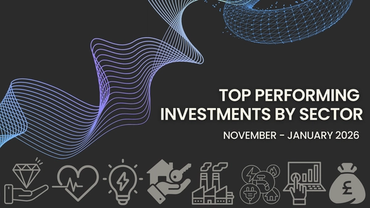Gaining a potential technological advantage with Exchange Traded Funds (ETFs)
10 Jan, 2023
Sponsored by Invesco
Technology is arguably one of the biggest influences of recent decades, but it’s not as new as many people might think. You can go back to the Stone Age, when primitive man figured out how to create stone tools that would make their daily lives easier and more efficient. Merriam-Webster defines technology as “the practical application of knowledge”. Collins makes more specific reference to “methods, systems and devices that are the result of scientific knowledge being used for practical purposes”. In any case, technology has come a long way in the past million or so years!
Why consider investing in technology?
Technology is transforming a diverse range of industries by making processes more efficient and companies much more competitive. Today’s technology giants include such household names as Apple, Microsoft, Google and Amazon. The technologies provided by these and so many other companies are now embedded in our lives – from the way we shop, work, communicate or enjoy leisure time. And while many people may just see the end-product, be it their iPhone or the latest Samsung 8K television, what’s more important is the technology underpinning each product.
This “practical application of scientific knowledge” is moving into new areas all the time. Until recently, no-one would have thought of car manufacturers as technology innovators, but today advances in technology are separating the winners from the losers. You can debate whether Tesla should be classified as a car or technology company, but it’s more accurately a car company that uses technology better than many of its competitors.
Similarly, you have companies that are using technology to deliver their financial services and products (called “fintechs”), and they are challenging more traditional banks and insurance providers. This disruptive pattern is replicated across multiple industries and no sector is immune. In our opinion, that’s a good thing, including for investors looking for potentially stronger growth opportunities.
What are technology ETFs?
It’s important first to understand how an ETF works. Most are passive, meaning they simply aim to track the performance on an index, such as the FTSE 100, as closely as possible. There is a wide variety of technology indices from which to choose, from those comprised of stocks in the broad technology sector classification to ones focusing on a specific technology industry or theme.
The technology sector is typically defined as being composed of stocks involved in Information Technology (IT), such as software providers, electronics manufacturers, computer hardware makers. However, this is a far narrower definition than the “practical application of scientific knowledge”. You can gain a broader technology exposure through an ETF tracking Nasdaq indices, with some of the most innovative companies across various industries listing their shares on the Nasdaq stock market. In terms of market capitalisation, the Nasdaq 100 has approximately half of its weighting in companies within the traditional technology sector, such as Apple and Microsoft, but many of the companies in other sectors in the index can also offer an application of scientific knowledge.
There are also ETFs based on segments of the technology sector, such as semiconductors or cloud computing, but what could be considered more interesting are the ETFs focusing on a specific theme. As illustrated with Tesla, some stocks transcend individual sector classifications. So, instead of limiting inclusion to a certain sector, a thematic ETF usually tracks an index with exposure to a specific theme, typically meeting the broader definition of technology.
Clean energy is an example of a technology-related theme. A clean energy ETF would invest in companies that develop, manufacture, install or are otherwise involved with the technologies driving the transition to solar, wind and other renewable energy sources. You can also access ETFs that offer even more precise exposure to one of the clean energy technologies, such as solar, wind or hydrogen.
Blockchain is another interesting theme. Probably best known as the technology where bitcoin and other cryptocurrencies can be traded on, blockchain has broader appeal across every sector.
This distributed ledger technology is already being used by companies around the world to improve supply chain efficiency, make transactions more immediate, health care and other sensitive records more secure, but the technology can provide other opportunities.
Indices that concentrate on a specific theme, like those above, are often constructed by firms with specialist knowledge of the field, which enables them to understand the complexity of the technology’s entire ecosystem and identify companies with meaningful exposure to the theme.
What are the risks?
Focusing on a specific sector or theme should be considered higher risk than investing more broadly across the stock market. That means an investor needs to be prepared to accept more volatility – bigger price swings in either direction – especially over shorter time periods.
Technology is a growth investment, meaning that, over the long term, stocks tend to demonstrate higher average growth rates than the broad market. Most technology companies will reinvest their profits back into the company, often spending on research and development. They do this with the aim of driving future growth for the company, which would hopefully lead to increases in the share price. Broadly speaking, technology investors may be more interested in capital appreciation than a regular income stream.
It’s also worth pointing out that not every theme will be a financial success. Just because something sounds good on paper doesn’t mean it makes sense from an investment perspective. When considering a technology theme, for instance, you need to understand what is driving the theme. You need to understand what challenges the companies could be facing as well as the opportunities, any barriers to entry, economic considerations, whether the companies will actually make money.
How to find the right technology ETF?
At Invesco, our range of technology ETFs track indices that are exposed to US and European technology sectors, as well as more specifically focused themes. These include clean energy technologies, biotechnology, fintech and blockchain technology. We believe these are all strong long-term growth themes.
Find out more about ETF investing with Invesco
Investment risks
The value of investments and any income will fluctuate (this may partly be the result of exchange
rate fluctuations) and investors may not get back the full amount invested.
Important information
This is marketing material and not intended as a recommendation to buy or sell any particular asset class, security or strategy. Regulatory requirements that require impartiality of investment/investment strategy recommendations are therefore not applicable nor are any prohibitions to trade before publication.
Data as at 14 December 2022 unless otherwise stated.
Where individuals or the business have expressed opinions, they are based on current market conditions, they may differ from those of other investment professionals and are subject to change without notice.
This material has been communicated by Invesco Asset Management Limited, Perpetual Park, Perpetual Park Drive, Henley-on-Thames, Oxfordshire RG9 1HH, UK. Authorised and regulated by the Financial Conduct Authority.
EMEA 2516181/2022






